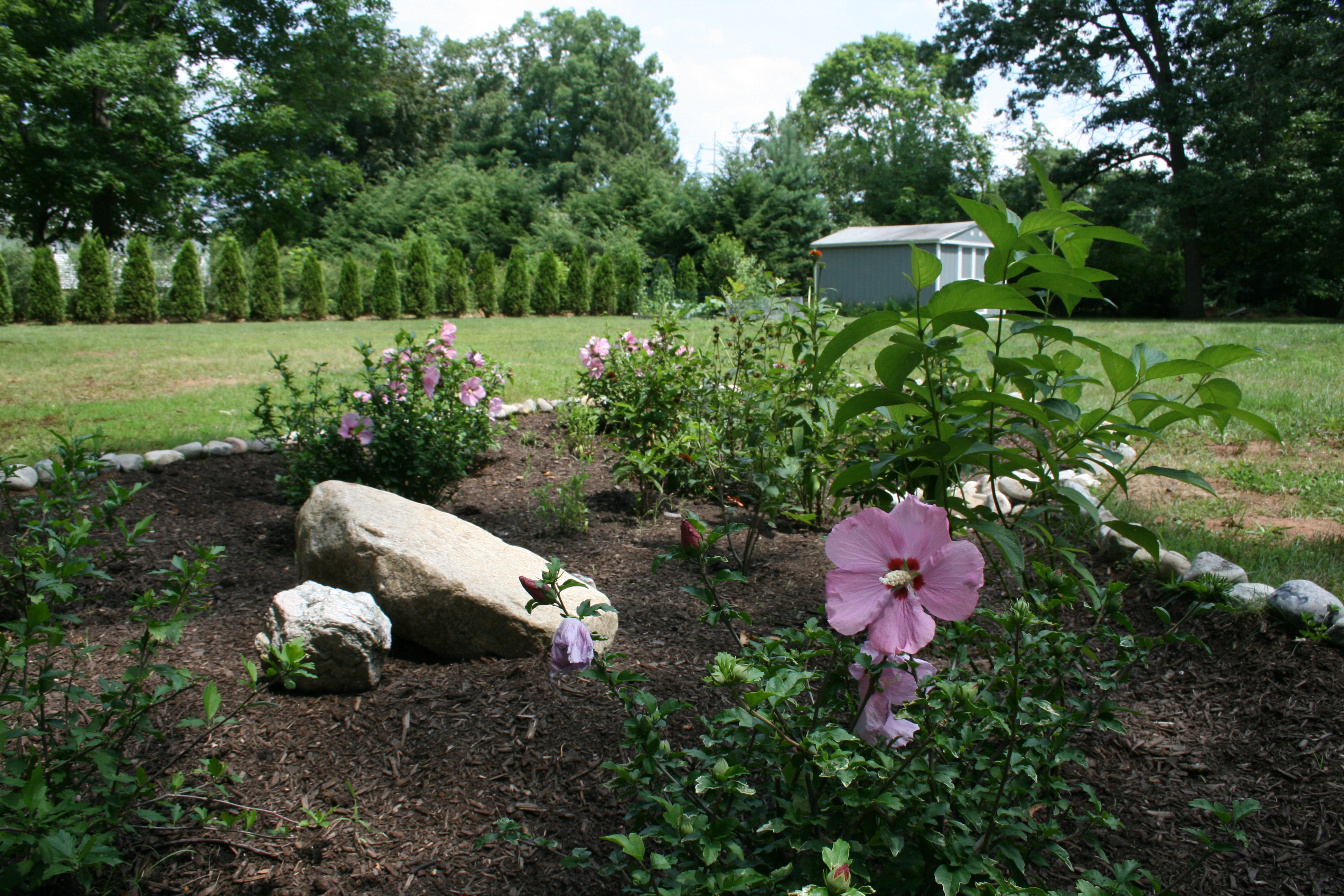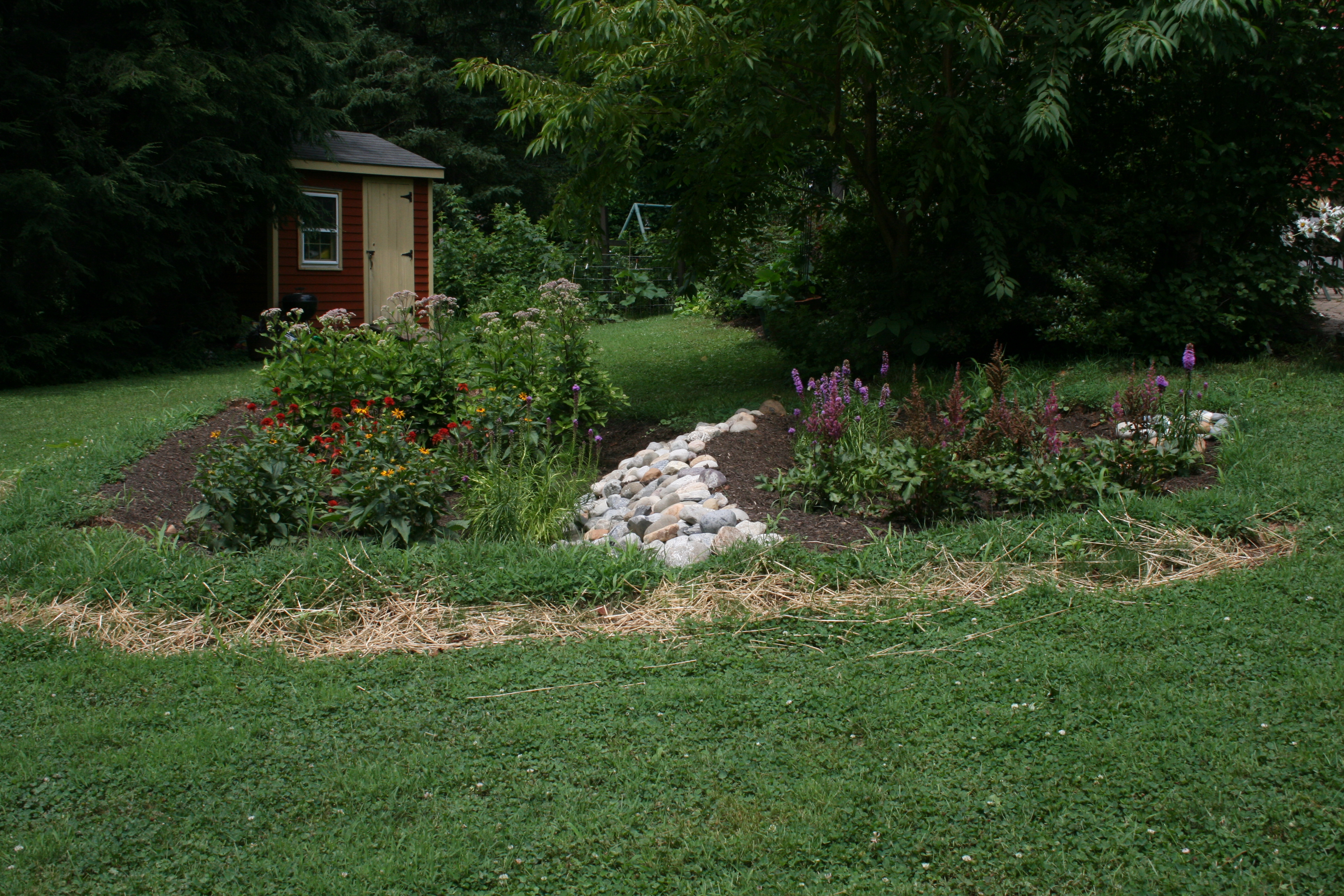The Long Island Sound cleanup is so massive that there’s nothing one person can do to help, right? Wrong.
 While a lot of the nitrogen pollution that enters the Sound comes from sewage treatment plants, between five and 10 percent comes from stormwater runoff. A lot of that originates on lawns and landscaped areas like the ones right outside your own door.
While a lot of the nitrogen pollution that enters the Sound comes from sewage treatment plants, between five and 10 percent comes from stormwater runoff. A lot of that originates on lawns and landscaped areas like the ones right outside your own door.
Five to 10 percent is a small but important amount. It might be the difference between ending the annual summertime drop in dissolved oxygen (known as hypoxia) that has afflicted the Sound for decades or having the western end of the Sound and the fish and other marine life that live there continue to suffer.
So changing how you care for your lawn can help Long Island Sound recover. Even better, improving your landscaping practices is easy, your property will look at least as good, and it will be a safer place for birds, beneficial insects and other wildlife!
We asked Judy Preston, the Long Island Sound outreach coordinator for Connecticut Sea Grant, for tips on how property owners can reduce runoff from their lawns.
 “Fundamentally it’s a whole change in the way you think about landscaping,” she said. “It’s a challenge. On the other hand, hypoxia isn’t imaginary, and we know there is a link between nutrients and hypoxia.”
“Fundamentally it’s a whole change in the way you think about landscaping,” she said. “It’s a challenge. On the other hand, hypoxia isn’t imaginary, and we know there is a link between nutrients and hypoxia.”
Almost everything on Judy’s list involves the use of nitrogen fertilizers, and the bottom line is that less is better, and organic beats synthetic.
Before we get to her complete list, she had one recommendation that struck us as so beautifully simple that we wanted to highlight it. Instead of worrying about how much fertilizer to use or when to use it or how high to let your grass grow before cutting, just do this: make your lawn smaller.
A lawn that’s half as big results in half as much runoff. Replace turf grass with native shrubs that bees and birds like, and you’ll reduce pollution and have a yard that’s better for wildlife.
Here are Judy’s other recommendations:
- Have your soil tested, and only use fertilizer if the results say you really need it—many lawns don’t.
- Don’t use all of your fertilizer (or pesticides) if you don’t need it.
- Apply one third to one half less fertilizer than is recommended.
- Apply fertilizer no more than twice a year.
- Use organic, slow-release fertilizers rather than petroleum-based fertilizers (although keep in mind that fertilizer is fertilizer, even if it’s organic).
- Add white clover to your lawn as a source of nitrogen that won’t run off.
- “Grass-cycle” by leaving your grass clippings on the lawn. About half of all the nitrogen you apply in your fertilizer ends up in grass clippings, so leaving them there helps fertilize the lawn, keeps the nitrogen out of the Sound, and saves you money.
- Add compost to your lawn to keep the soil healthy.
- Don’t use weed-and-feed products: One size does not fit all. You’re better off using only the products you need for your lawn’s specific needs.
- Give your lawn the water it needs, but don’t over-water: 1 to 1.5 inches of water a week is plenty. That will help keep excess water from running off.
Posted by Tom Andersen, Communications Coordinator for Save the Sound in New York

1 thought on “Keep a Healthy Garden and Lawn: Tips for Sound-friendly Gardening”
Comments are closed.